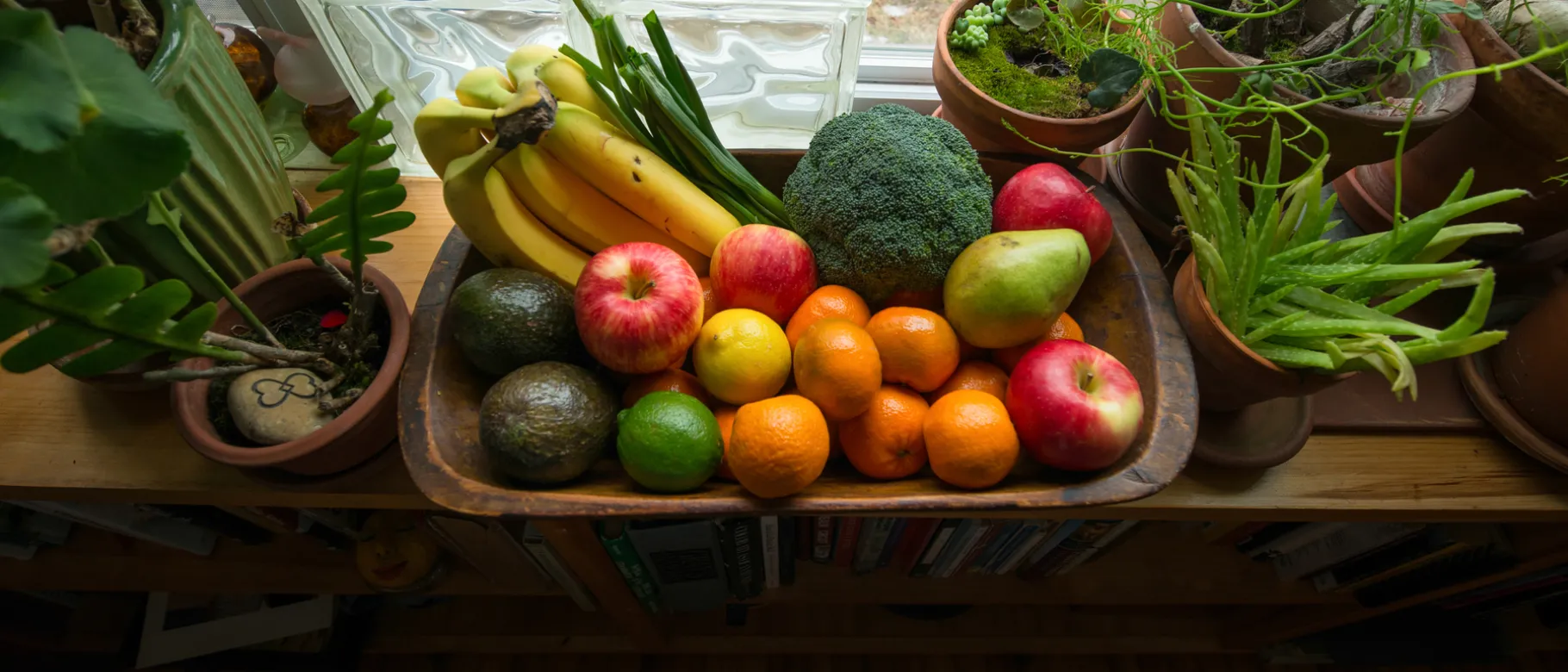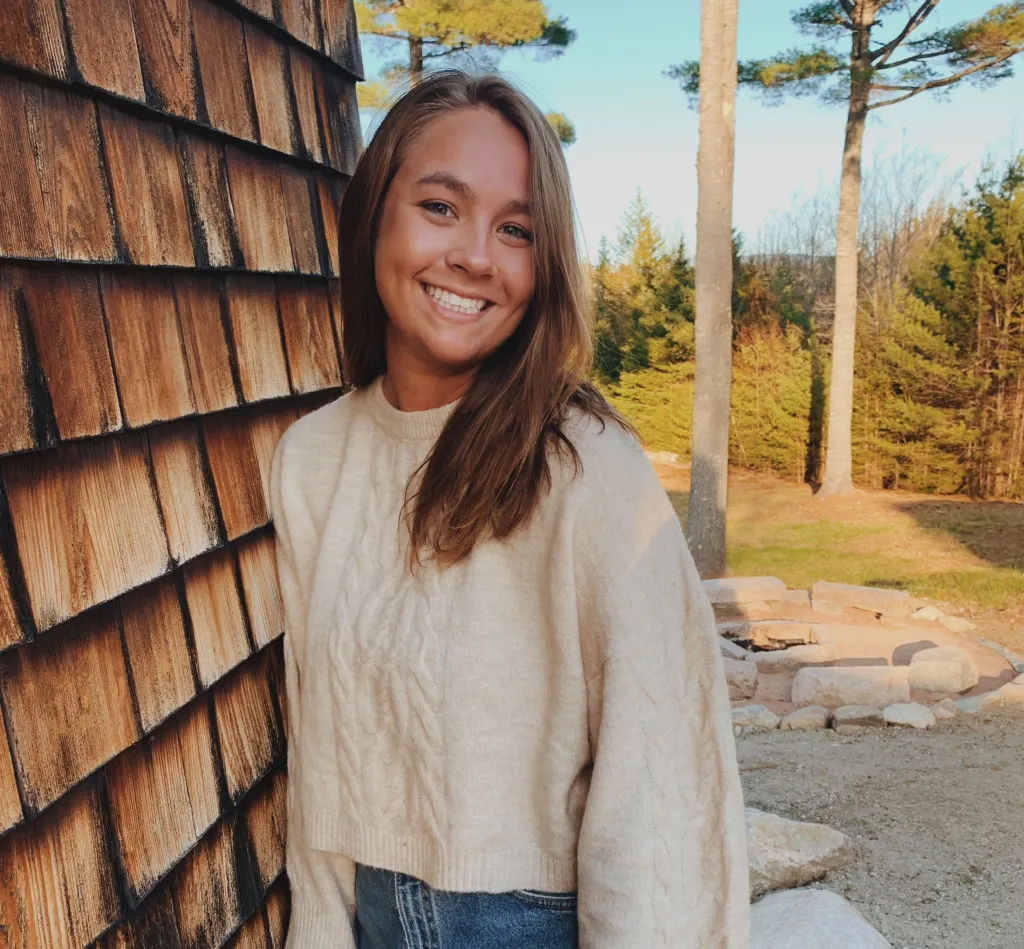Nutrition students create healthy lesson plans for WinterKids' annual Winter Games

Two nutrition majors at the University of New England are using their studies to make an impact on the health of children in Maine and New Hampshire.
Class of 2021 students Paige Mason and Josephine Brown have developed the nutrition curriculum for the fourth annual WinterKids Winter Games, a four-week nutrition and physical activity challenge for schools and classrooms across Maine that takes place in January.
WinterKids, based in Westbrook, is the only nonprofit in Maine dedicated exclusively to increasing outdoor physical activity in children and families in winter, which the organization has dubbed the “longest, most sedentary season.” This is the second year that nutrition students from UNE have developed the program’s nutrition lesson plans.
“Developing the nutrition education activities for WinterKids’ Winter Games gives our students good practical experience in writing lesson plans for different age groups,” said Anne-Marie Davee, M.S., RDN, LD, assistant clinical professor in the Department of Nutrition within the University’s Westbrook College of Health Professions, who coordinated with WinterKids to establish the partnership. “It was really nice for them to learn about the different sort of skill levels of the different grade levels.”
The Winter Games were developed in 2017 to help teachers engage their students in outdoor learning. Each year’s games have an overarching theme, and each week of the month has a different focus: physical activity, nutrition, family engagement, and a winter carnival.
This year’s games are themed “circles.” Nutritional lesson plans incorporate ways to include healthy, circular foods into children’s diets, like apples and grapes. They also integrate the principles of the U.S. Department of Agriculture’s currently adopted nutrition guide MyPlate — aptly, a circular model — into nutritional recommendations.
Schools typically compete for prize money, but this year’s games have been restructured in light of the coronavirus pandemic. Elementary school teachers can register their classes for the Winter Games, receiving “PLAYBooks” for every student, which contain fun, engaging activities designed to encourage outdoor learning. Four hundred teachers and 8,000 students are expected to participate.
WinterKids Education Director Marion Doyle said the games are a way to create a fun, impactful outdoor learning experience.
“WinterKids has been encouraging teachers to take the classroom outdoors for 20 years. This year, it is even more important to incorporate outdoor activity during the school day,” she said. “Teachers — and guardians who have become teachers — can easily implement the Winter Games activities.”
The UNE student-developed nutrition plans also include games intended to teach children which foods are healthy and which are not. Mason said it was critical to develop a program that would teach children the principles of nutrition in ways that are entertaining for them.
“It was important to me to make sure these nutrition education activities we were planning would be taught in a way that the students could connect with,” said Mason, a Mount Desert, Maine, native. “We can share all the nutrition knowledge in the world with these students, but, if we don't share it in a way that is engaging and exciting for them, then we aren't doing our job. If the students can go home after school and still be talking about what they've learned during the nutrition week and want to keep talking and learning about it, then I know I've made an impact.”
The partnership between WinterKids and UNE has been beneficial because the University’s students bring fresh perspectives on nutrition education, Doyle said.
“It has been wonderful to partner with UNE to engage children in developing skills for healthy eating and active learning,” Doyle remarked. “Students in UNE’s program are thinking about nutrition in new and exciting ways and are eager to do good for their communities.”
Brown said she was thankful for the experience as it gave her the chance to make lesson plans for children, a new experience for her.
“I had a great experience with working with WinterKids, and I would recommend future seniors in the nutrition program to take this opportunity,” she said.
Mason said her work with WinterKids has influenced how she will work with patients in her chosen profession.
“Working with WinterKids has helped me realize that there are a lot of barriers people face on a daily basis that prevent them from being able to make healthy changes,” she remarked. “Something I will take with me as a future registered dietician is to always help address what my patients’ barriers are and modify the way I am going to help them so they can be successful with creating the necessary changes to live a healthier lifestyle.”
